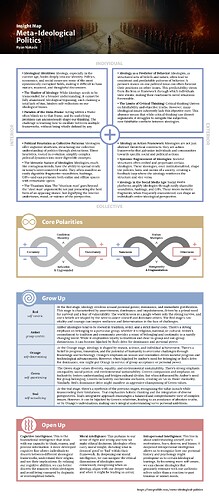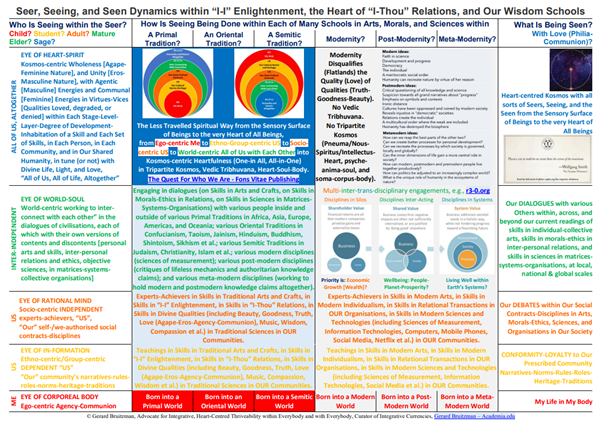In a time where information is abundant, society faces the unintended repercussions of ideological rigidity, tribalism, and deep-rooted discord. The initial promise of social media to nurture connections and global understanding has, in many cases, led to the opposite effect. Rather than bridging gaps, these platforms often widen them, creating ideological echo chambers where individuals are only exposed to congruent views, thereby reinforcing and intensifying their existing beliefs. This tribal mindset not only hinders genuine dialogue but also exacerbates societal divisions, leading to a polarized world where anything like a “middle ground” seems harder to find than ever.
Ryan’s presentation delves into the complex nature of ideology and its profound impact on our perceptions, interactions, and behaviors. He underscores the human brain’s inherent tendency to seek patterns, elucidating how ideologies aid us in deciphering the world but can also misguide us. Ryan describes three definitions of “meta” to elucidate the concept of meta-ideological politics: “meta” as transcending, “meta” as between, and “meta” as self-aware or self-referential. He then defines ideology as “a constellation of foundational premises about politics and society, often which are contested by others, that form the basis for normative prescriptions.” Through interactive exercises and discussions, Ryan emphasized the necessity to transcend (and include) our entrenched beliefs, and to approach political and social issues with greater maturity, empathy, and nuance.
Ryan calls us to rise above the conflicts and limitations of conventional ideological frameworks. By recognizing the pitfalls of tribal thinking and the distortions of social media, there’s an opportunity to foster a more inclusive, more understanding, and more holistic worldview. Embracing this meta-ideological approach can help us extend our empathy and more fully inhabit each other’s point of view, while paving the way for more constructive dialogues and a more unified approach to addressing the pressing challenges of our time. Through the lens of meta-ideological politics, individuals and communities can navigate the complex ideological landscape with confident humility, avoiding the pitfalls of homogeneity and fragmentation, and fostering a culture of open dialogue and mutual respect.
Key Questions to Contemplate:
Self-Reflection on Ideology: How have my personal experiences, upbringing, and environment influenced my current ideological beliefs?
Ideological Flexibility: Am I able to step back from my own ideology and view it as just one of many possible perspectives? Can I see through it as well as look at it?
Emotional Undertones: How do my emotions and personal biases influence my adherence to certain ideologies? Am I reacting emotionally to opposing views?
Engaging with Opposing Views: How often do I engage with opposing ideologies in a genuine attempt to understand them? Do I “steel man” or “titanium man” opposing arguments to ensure I’m addressing their strongest form?
Ideological Evolution: How have my ideological beliefs evolved over time? What events or experiences prompted these shifts?
Construct Awareness: Am I aware of the constructs and frameworks that shape my understanding of the world? Can I differentiate between seeing through an ideology and looking at it?
Ideological Impact on Relationships: How do my ideological beliefs influence my interactions and relationships with others? Do they create barriers or bridges?
Ideological Simplification: Do I tend to oversimplify complex issues based on my ideological stance? How can I ensure I’m considering the full complexity of an issue?
Ideological Fear: What fears or concerns underpin my adherence to certain ideologies? How might these fears be influencing my beliefs and reactions?
Ideological Growth: What steps can I take to further refine and evolve my ideological understanding? How can I ensure I remain open to growth and change in this area?

